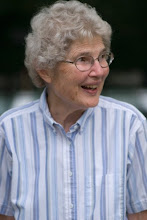Even when I put my fingers close together, there's a huge gap between the index finger and the middle finger. My aunt told me once it's a trait much more common among Asians than in Europe; I don't know if that's true. My mother's father, in any case, had the same trait when he was young, although the swelling of his fingers with age has since closed the gap.
His grandfather, Inder Singh, used to tell him that such hands meant he would have trouble holding onto money all of his life. (This suggests to me that Inder's own fingers were more tightly aligned: when the village's previous revenue collector died, three of his relatives came forward to claim succession of the hereditary position. Rather than sort out who was the legal heir, the official in charge of passing on the position said that whoever could deliver the amount of the upcoming year's worth of taxes within the next 24 hours would automatically be named the new numberdar. Inder Singh, though only a farmer, had enough saved to pay immediately and won the office for himself and his son after him. If history had progressed differently, that post would have been passed on to my grandfather next, but it slipped, instead, down the gap between his fingers when he left for America and married there.)
I am thinking of Inder Singh today because I ran across his name in the old village land records my grandfather has carefully transliterated and transcribed from the Urdu originals. He's done this for thousands of records from all over the district: from the 1850 census on through the rest of the British era, each landowner was be required to give the names of four generations of ancestors in addition to his own name, the best glimpse we have today of most families' histories. (My grandfather once told me that when he was a boy, professional geneologists memorized such information, but most of them were Muslim and left at Partition.)
What can I give my children to remember of Inder Singh beyond the survival of a name, linked by a chain of transliterated land records and American birth certificates to my own? If I lost all written resources today, here is what I would tell them:
-Many people used to think that children should keep quiet whenever possible, and especially that they shouldn't ask so many questions, but Inder Singh used to remind the boy who would become my grandfather, "God gave you a tongue so you can ask a question when you don't know something."
-Inder Singh was modest, mischievous, or some combination of both. At his sons' weddings, he wore a very simple homespun dhoti that led the bride's relatives to question the ability of his family to support their beloved girl--and then shocked everyone with the sum of money he gave as wedding gifts! Possible lesson: don't keep up appearances--use your money to take care of people instead.
Reading at Writ & Vision Thursday
-
I'm going to be doing a reading at Writ & Vision in downtown Provo at 7 pm
this Thursday.
I'm excited: I love to read my work, but I don't actually do so v...
6 years ago

I had never noticed that gap until I read this, but when I lifted up my hand, the light glowing from my screen made clear that I, too will never be any good at holding on to money.
ReplyDeleteyes, I too have an excuse to be a starving artist. I'd noticed that I have the same trait as bapu in that my second toe is longer than my big toe, but I hadn't noticed my fingers.
ReplyDeleteWhat I remember of Inder Singh from the stories I've been told is that his father asked him why he had such a large family, and how he expected his sons to be able to support themselves when they would each have such small shares of his farm. He told his father that he meant to educate all of his children, and so they could make their living in different ways. Before I heard this story, I had thought that it was typical for Punjabis to have large families, but now I realize it was not.